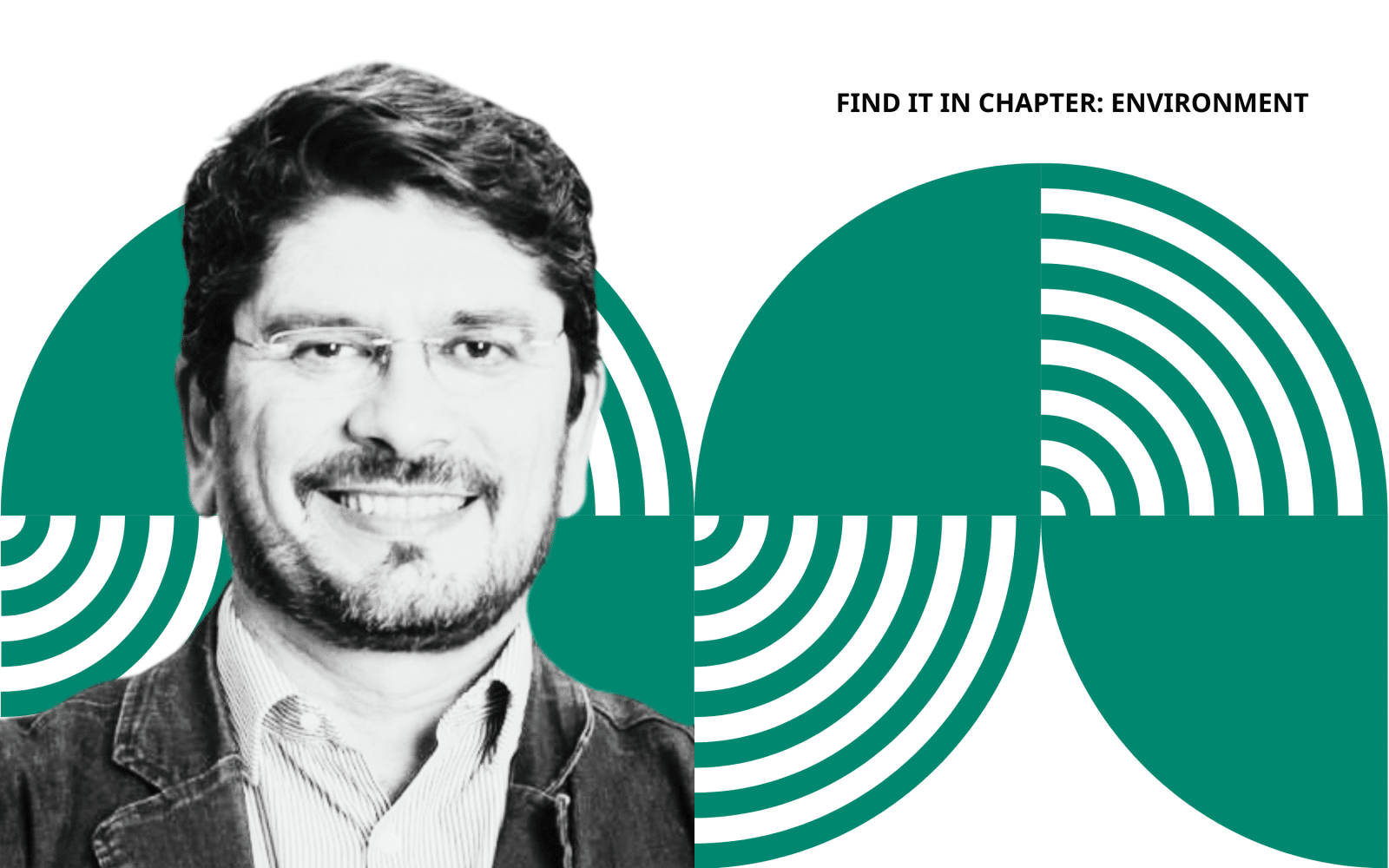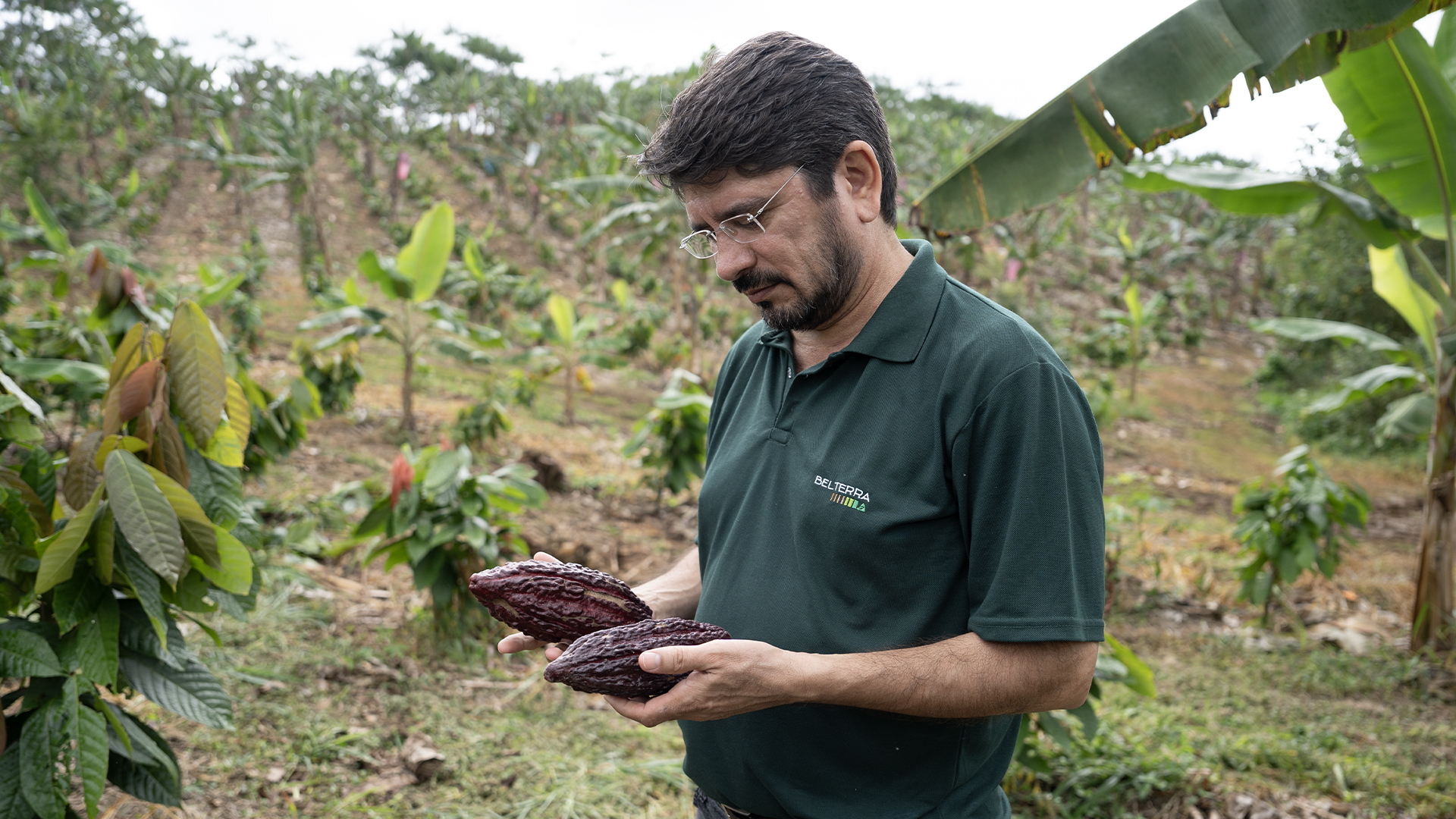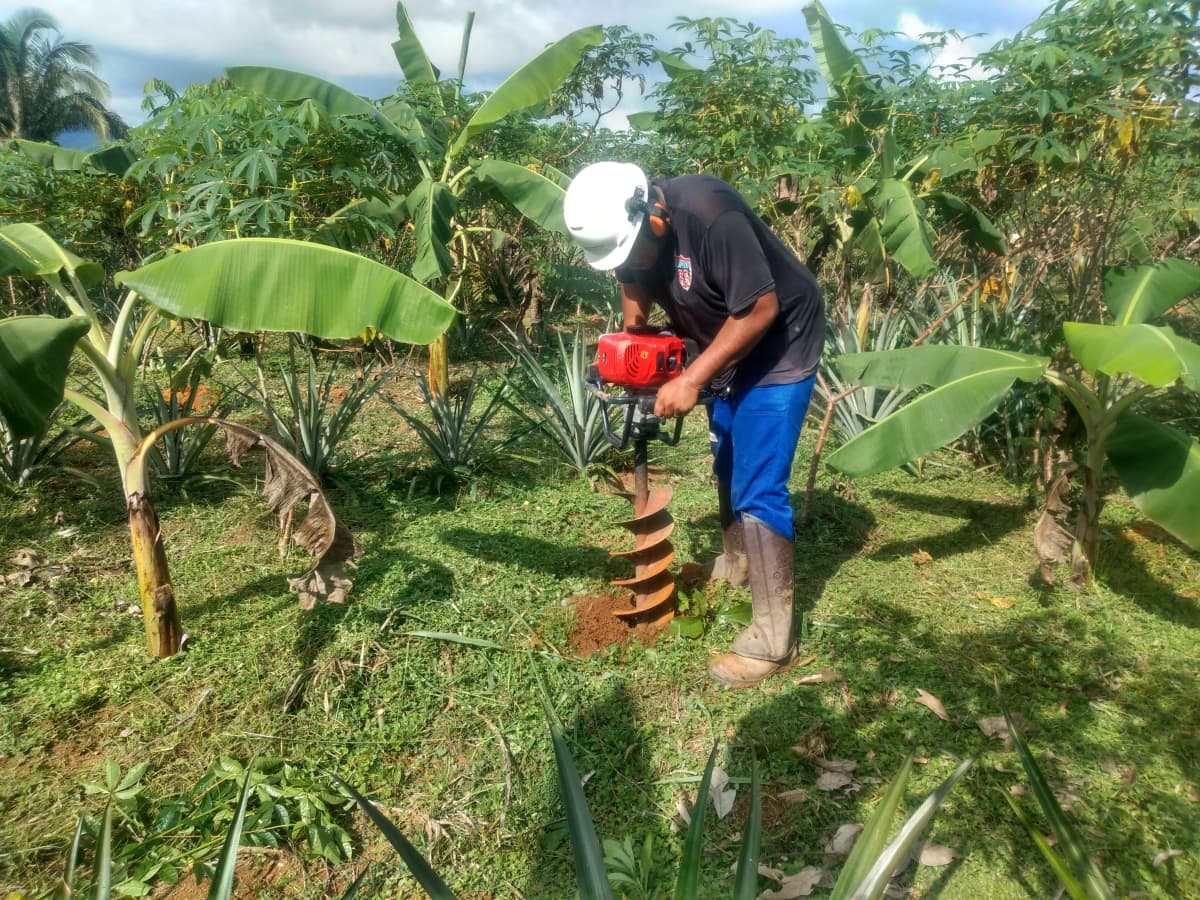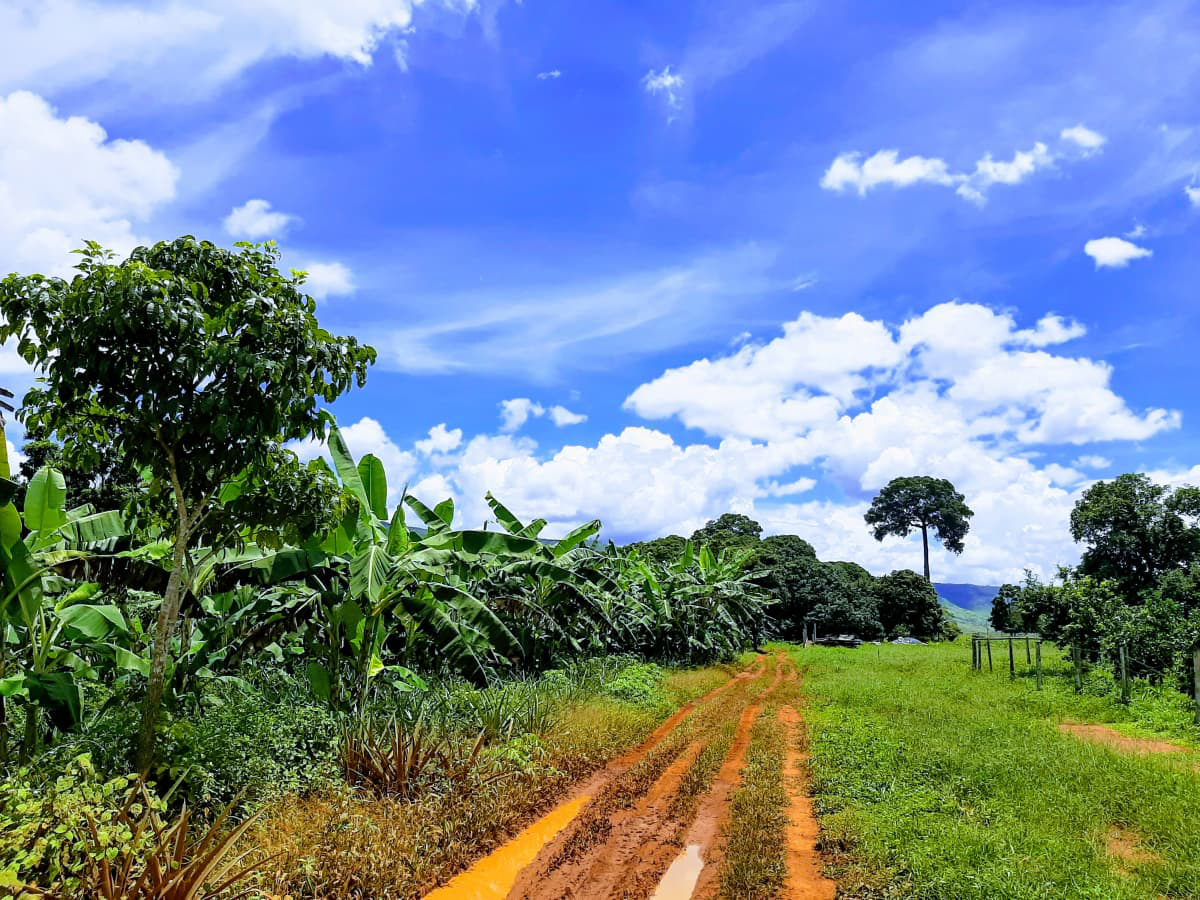Valmir Ortega
Executive Director, Conexsus
Fellow project website: www.conexsus.org
Valmir Ortega is creating a way forward for small and medium-sized farms and forest producers in the Amazon, making possible a productive economy that regenerates, rather than extracts, natural resources.

THE NEW IDEA
To strengthen the small producer economy in the Amazon, Valmir sees and is addressing three main bottle-necks experienced by farmer associations, cooperatives, and small forest producers: Access to financing, production and business models, and connection with markets. Formed in 2018, his organization Conexsus supports producers without occupying or competing for space or resources. Instead, it fills gaps in the existing value chain and strengthens leaders’ capacities to increase production and market participation, all while expanding every-one’s sense of what is possible to achieve as a networked collective.
On the financing front, Valmir brings hybrid solutions and helps community organizations access growth capital. Via a network of credit specialists, Conexus guides and advises partners and, where possible, helps them secure loans as a collective. The network has so far leveraged nearly one million USD from other investors (at a rate of 1:5) to support 17 business prototypes. Conexus is also developing financing models adapted to community businesses with leading public banks.
In a few short years, Conexus has gained legitimacy and relevance and now builds bridges between different sectors and actors, including small and medium-sized businesses, the market, and public banks. Looking ahead, Valmir wants to shift the focus of rural credit, currently used mostly for agribusiness, to sustainable activities and develop alternatives to the current economy that is based on monoculture and cattle. Only by working at this scale does he believe it will be feasible to protect the forest and ultimately recover biodiversity.
THE PROBLEM
Despite growing global awareness of the effects of de-forestation, the situation has only gotten worse in the Amazon in recent years. According to the latest MapBiomas report, 15% of the Amazon’s natural forests were cut between 1985 and 2022, a very significant loss. In addition, the Cerrado – the biodiverse patchwork of forests, savannas, and grasslands southeast of the Amazon – was reduced by 27% over the same period.

Yet deforestation is just one element in a cycle of soil and land degradation and biodiversity loss. Decisions at all levels – consumer, business, government – continue to favor fast returns over a commitment to the future livability of the planet. In the agricultural sector, where Conexsus works, this preference translates into technical support and financing that prioritize monoculture and large-scale producers.
"While about half of Conexsus’ work focuses on the Amazon, the organization – with its team of on-the-ground advisors – also targets other key Brazilian ecosystems, from the Cerrado, a highly endangered tropical savanna, to the coastal Mata Atlantica rainforest.”
Reuters
Meanwhile, rural forest communities face increasingly limited economic choices. According to the 2017 Agri-cultural Census, based on two Amazonian states, 88% of small farmers do not have access to technical assistance, and 83% lack access to credit. In recent years, as pressure to cut down the forest has increased, support for those trying to live in a healthy, balanced way with the forest has become more limited, leaving small-scale producers in already struggling regions in a situation of extreme social and environmental vulnerability.
THE STRATEGY
Having grown up in the region and seen both the changes and challenges firsthand, Valmir is fostering a new ecosystem of economic development that preserves biodiversity and builds up healthy, connected producer networks across the Amazon region. His organization Conexsus starts by strengthening local leaders, communities, and institutions, and filling gaps in the existing value chain.
"Conexsus…came from the identification of gaps for operating with sustainable businesses in the Amazon.”
Plenamata

Valmir began testing this approach with the Conexsus Challenge, a pilot in three phases. The first phase was to map all the actors and see the gaps. To ensure good coverage and build legitimacy, Valmir asked 60 organizations to identify promising cooperatives and producer associations from all regions of Brazil, including Indigenous, quilombola (African Brazilian), and land reform settlements. The resulting broad mapping incorporated local and regional perspectives. In the second phase of the Challenge, and in partnership with aligned groups, Conexsus organized a series of national seminars to listen to local communities, learn deeply about the challenges they face, and invite information exchange among 300 cooperatives. In the final phase, 100 cooperatives were selected for catalytic and ongoing support, and connected to 80 values-aligned companies eager to purchase sustainable products from the network.
The Conexsus Challenge consolidated the organization’s trademark methodology of working alongside local institutions and connecting sectors that do not understand each other well. By strengthening the ecosystem without supplanting existing actors, Valmir is seen, rightly so, as a trusted enabler – without partisan or political leanings, and focused on what’s best for the region and its people.
Lessons and insights from the Conexsus Challenge inform three areas of strategy: 1) Development and strengthening of local leaders’ capacities and management of their organizations; 2) Promotion of fair-trade mechanisms to increase income for small producers, valuing sustainability as a core tenet; and 3) Expanding access to credit for all partners.
The areas are interconnected and reinforcing. To foster local producers’ capacities, Conexsus acts as an accelerator, providing customized training in business (management, marketing, finance) and production (sustainable technologies, operational efficiency). This support is essential to prepare producers for the market. Then, by guaranteeing high-quality sustainable products that consumers will want to buy, Valmir promotes fair trade through roadshows and events, thus strengthening the whole value chain.
At the same time, this work would not be possible with-out helping producers access affordable growth cap-ital. Thus, one of the most important contributions of Conexsus is its work to significantly expand and diversify access to credit in a variety of forms. It does this via values-aligned community business chains through CX Investments which is fully owned by Conexsus. To date, Conexus has invested more than 1.2 million USD into community businesses. Meanwhile, Valmir builds bridges between producers and public banks. By developing partnerships with public banks – Banco da Amazônia and Banco do Brasil – Conexsus is working to expand significantly public funds available for small producers.
Supporting hundreds of producer organizations has strengthened Conexsus’ ability to bring financial impacts to its members and communities. One example is Coop-Cerrado, a network of family farmers who sustainably harvest and process fruits, plants, and seeds of the Cerrado. The cooperative’s 2018 revenue was 400,000 USD before participating in the Conexsus accelerator pro-gram; in 2021, after two loans from the Conexsus Fund and participation in business roadshows, CoopCerrado will earn more than 1.4 million USD. With more than 4,000 producers across five states, CoopCerrado saw its members increase incomes by more than 300%. In addition to the economic contribution, the cooperative has become a reference for the new, environmentally sustainable economy that Valmir knows is possible with the right support.
Looking to the future, Valmir is out to show that small and medium-sized producers and producer networks can be financially viable – and ultimately, to unlock more funding and support for efforts that restore biodiversity loss.
"Conexsus has the intention to provide financial mentoring and loans to approximately 600 institutions over the initial lifetime of the fund, impacting 30,000 producers’ households and covering 2.5 million hectares.”
THE PERSON
Valmir was born into a poor family of farmers who migrated to Mato Grosso do Sul, a central western state of Brazil, in search of new opportunities. As a young person, he witnessed the area’s transition from small farms to monoculture and worked as a goldsmith to help support his family.

Later, at university, he discovered and studied geography – it was a powerful way to map and make sense of the world. He also became a student leader in his region. Convinced of education’s transformative power, Valmir planned to teach, but an invitation from a government official to develop the state’s first protected area took him down a different path. He structured a system of public conservation units, managed water resources, and supported legislation, later taking on public endeavors at the Ministry of the Environment, IBAMA, and Pará Environment Secretariat – an important milestone in stopping deforestation in the Amazon.
Equipped with a deep understanding of how the public sector worked, Valmir joined Conservation International Brazil in 2010. He began to connect, now from an organizational perspective, with different worlds that do not al-ways understand each other. By 2018, when the idea for Conexus emerged, he had begun to see that an enabler was needed to create relationships of respect, support local actors, and deliver economically viable solutions in tune with the forest – on a large scale.